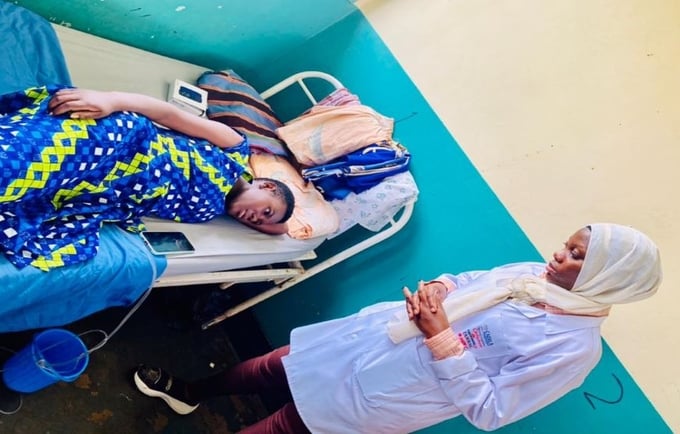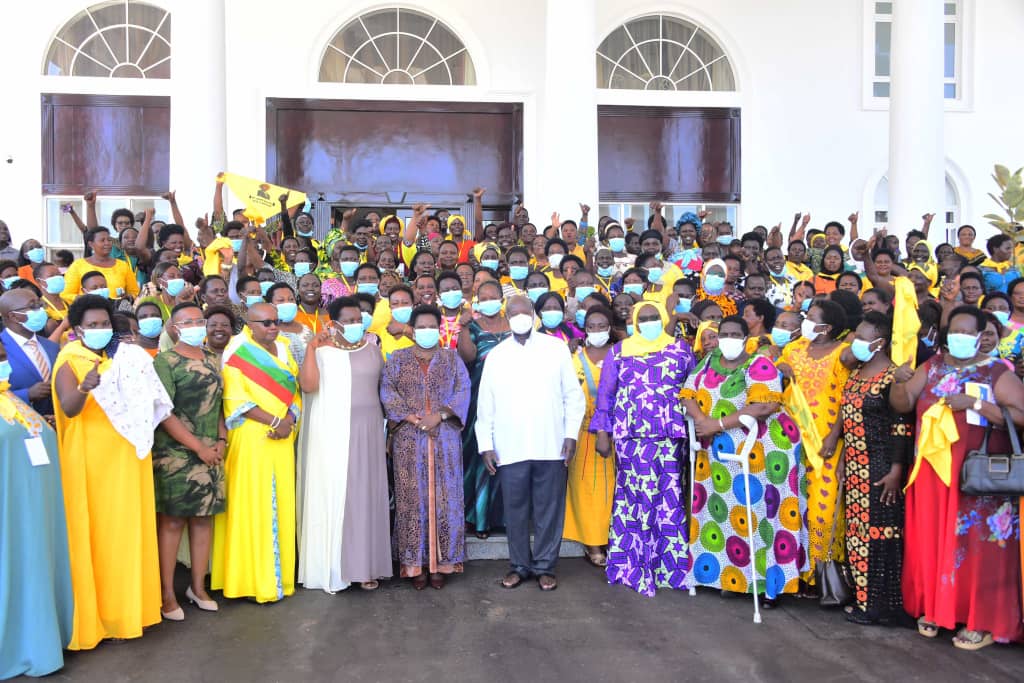Routine birth leads to fistula for Ugandan couple, nine operations
On December 18, 2017, Umuhiire Shadia achieved a feat many women who would consider themselves better than her never will. She found herself on the altar saying, “I do,” to a man, Hassan Ssentongo, who could have had any woman he wanted but had chosen her. After many trials and tribulations.
The wedding that took place in True to Word Church in Kayunga was not one Shadia expected. Or had dared hope for. She had had a different battle for five years that had seen many friends and family abandon her as a hopeless case. Shadia suffers from the effects of Fistula.
Keep Reading
In October 2009, Shadia and Hassan were expecting their second child. They travelled from their home in Buligobe village, Namawojjolo Sub County in Mukono district for medical care in Lugazi. Unfortunately, as is too common, the couple did not receive quick attention from the medics at Kawolo hospital.
Fearful that her condition would get worse as there was no doctor on duty, available personnel tried to help. They were too late, her baby was dead. The stillborn had to be removed by caesarian section.
Shadia’s husband recalls that this is where their “real problems began.” He says, “The interns removed the dead baby and soaked cotton wool in her stomach. Her stomach started to swell. The doctor showed at 3am and I was told to look for money to take her to Mulago hospital for further management.”
Mulago hospital staff saved Shadia’s life but at great cost to the family. Hassan says he had to sell a lot of family belongings to meet the medical bills at Mulago national referral hospital.
The couple was informed that Shadia had developed an obstetric fistula as a result of the difficult labour and she would need an operation to close the hole between her bladder and birth canal. They did not know it yet but Shadia would undergo nine unsuccessful operations in five years to try and repair the damage her body had suffered.
After the ninth operation, the doctors would finally inform the couple that there was nothing further they could.
Shadia says, “We have tried everything but now we can’t do anything more. I will live the rest of my life leaking. My husband has been very supportive and that is where I draw my strength from.”
During that time, in between the many fruitless operations, Hassan says, “I would carry her every morning to outdoors, bathe her, feed her, like a baby. Feces and urine were draining unstoppably. She was smelling. People stopped coming to our home.”
Alice Emasu Seruyange the executive director, TEREWODE, a civil society empowering women and girls says that it is important for men to stand with their wives during such complicated health conditions.
“The men we have in our lives do not choose to behave the way they do. No one would want to associate with another person who is smelling. I wish all men would behave the way this gentleman stood by his wife, we would have fought stigma in communities,” she says admiringly.
Seruyange says that many women end up suffering from fistula because of the country’s poor health system.
Uganda has the highest known prevalence of Obstetric Fistula rate in Sub Saharan Africa with an estimated lifetime prevalence of 19.2% per 1000 women of reproductive age. The data of the last two Demographic and Health Surveys (DHS) show that 1 to 2% of Ugandan women have symptoms of Obstetric Fistula, of whom only 62% have sought medical attention.
Dr. Musana Othienel, a fistula surgeon, however, says that most women get fistula when they delay in labour resulting in obstructed labour.
He says that, “Women now know the importance of giving birth from a hospital. They ensure that they are there on time. However, because of our constrained human resources, we are now seeing delays at the facility level leading to complications and even death.”
In the interview, he added that giving birth before 18 years can also expose one to fistula because the bones are not strong enough to carry another person.
Dr. Musana says that Uganda also faces a challenge of few experts who can perform corrective surgery.



















